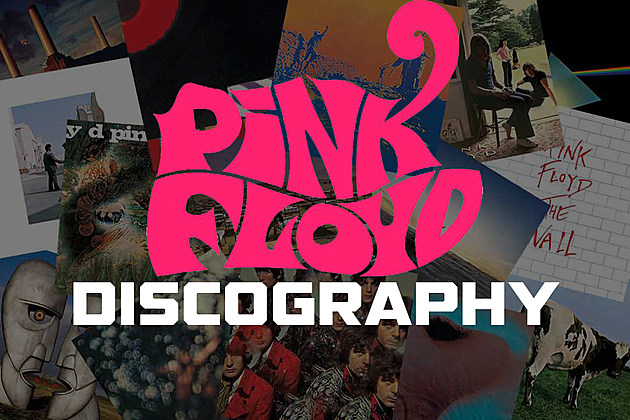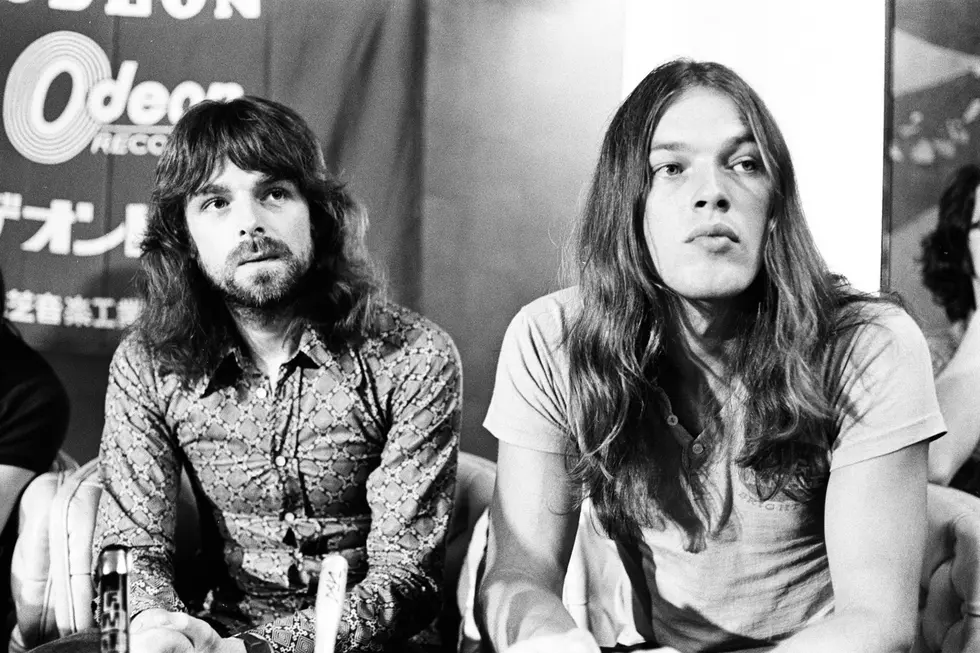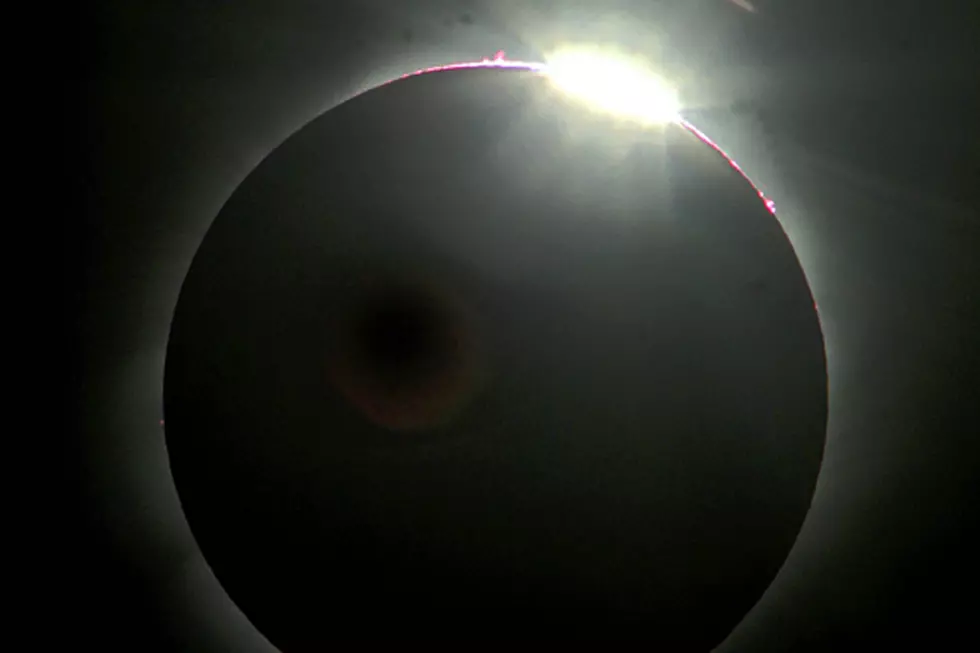
Pink Floyd Discography
Where Pink Floyd started and where they ended up are entirely different places. As one of the U.K.'s premier psychedelic bands, they pioneered a style and sound that influenced countless artists over the next several decades. Their discography is as wildly varied as any you'll find, with soundtrack albums, concept records and de facto solo LPs scattered among their catalog.
After original leader Syd Barrett flamed out with a series of mental and drug-induced breakdowns, the band changed direction, slowly turning into one of progressive music's most accomplished and successful groups. They were also one of rock's most challenging acts in the '70s, but that didn't stop millions of fans from making them global superstars with such albums as The Dark Side of the Moon and The Wall, both multi-platinum chart-toppers.
As Pink Floyd's history grew, the relationships among the four remaining members slowly deteriorated, to the point where '80s albums like The Final Cut and A Momentary Lapse of Reason are essentially solo albums by, respectively, Roger Waters and David Gilmour. Still, their discography is one of rock's sturdiest, from the psychedelic masterpiece that kicked it all off in 1967 to the quiet ambient requiem they ended their career with in 2014.
- 1967
'The Piper at the Gates of Dawn'
On their debut album, Pink Floyd both pioneered and refined psych-rock from the era. Syd Barrett, who made only this one full album with the band he founded, pretty much dominates the songs, twisting his words around equally skewed sounds and patterns. As the band moved on without him, it got more ambitious, but it also lost much of its playfulness.
- 1968
'A Saucerful of Secrets'
David Gilmour's first Pink Floyd album, and Syd Barrett's last, A Saucerful of Secrets was pieced together around Barrett's deteriorating mental state. It's less cohesive than the band's debut, and it often sounds like it was made by a group in transition. Following its release in 1968, the core lineup settled in for bigger and grander things.
- 1969
'More'
Pink Floyd's first full album without Syd Barrett doubles as a soundtrack album to a little-seen movie by director Barbet Schroeder (who later made Single White Female). The music is among the band's most experimental, drifting from acoustic folk songs to avant-garde noise rock. It's more of a curio than an essential work in their catalog.
- 1969
'Ummagumma'
Over the years, band members have distanced themselves from this double album, which is half live document, half solo recordings. And despite its relatively low standing among the group and fans, it marks another transitional work by Pink Floyd as they inched their way toward mainstream success.
- 1970
'Atom Heart Mother'
Pink Floyd's fifth album, like their fourth, hasn't always set well with the band (Roger Waters, in particular, never liked it). With The Dark Side of the Moon three years away, they expand their sound into more progressive territory here, with the six-part, nearly 24-minute title track paving the way for things to come.
- 1971
'Meddle'
The transitional album between the Syd Barrett and superstar eras of the band, Meddle centers on two sprawling tracks that serve as its centerpieces: the opening "One of These Days" and the 23-minute "Echoes," a prelude of sorts to The Dark Side of the Moon. From here on out, the psychedelic explorations from Floyd's earlier period give way to more progressive tastes.
- 1972
'Obscured by Clouds'
Like 1969's More, Obscured by Clouds doubles as a soundtrack to a foreign-language film most of the band's fans have never seen. This time, though, they build a concept album, sort of, around themes based on the movie. More important, Obscured by Clouds lays the foundation for the landmark The Dark Side of the Moon, which was one year away.
- 1973
'The Dark Side of the Moon'
The album that made Pink Floyd stars is also one of the most defining rock albums ever made. The band swept away its past in 43 glorious minutes of progressive space-rock and a loosely tied-together concept album about greed, the music industry, madness and Syd Barrett. It's pretty much the Pink Floyd story told through some of their all-time best songs.
- 1975
'Wish You Were Here'
Now one of the biggest bands on the planet, Pink Floyd reached into their past for an album (like its predecessor, the breakthrough Dark Side of the Moon ) about their one-time leader, Syd Barrett – whose mental illness, among other things, had forced his retirement. Wish You Were Here is their loving postcard to him, with the album's centerpiece "Shine on You Crazy Diamond" one of rock's biggest and most enduring tributes.
- 1977
'Animals'
Another one of the many transitional albums in Pink Floyd's career, Animals marks their first real political work as well as a reaction to the punk music then booming in the band's U.K. homeland. The album's five pieces weave together to form one of the group's most complex and textured albums. The gargantuan tour, and its many problems, inspired several of The Wall's most nihilistic moments.
- 1979
'The Wall'
Roger Waters dug deep into his personal family history for his double-record masterpiece about war, its toll on survivors, celebrity, isolation and getting sucked into your own head. It's such a fully formed and realized work that when it came time to make a 1982 movie based on The Wall, most of the pieces were already in place. The band's opus ... and its breaking point.
- 1983
'The Final Cut'
The band's follow-up to the massively popular The Wall album is a couple of things: a sequel, or prequel, to that 1979 LP, and, basically, Roger Waters' debut solo record (this is his final work with the band). The Final Cut digs deeper into the war themes that shattered his childhood and fueled much of The Wall. It's a bit self-indulgent at times, but it makes a fitting companion piece.
- 1987
'A Momentary Lapse of Reason'
Where the band's previous album, The Final Cut, was pretty much a Roger Waters solo record, A Momentary Lapse of Reason is essentially a David Gilmour LP. For the first time in years, a Pink Floyd album features no overriding concept. Instead, it's a collection of songs designed to showcase Gilmour's new role as group leader.
- 1994
'The Division Bell'
The Division Bell marked the biggest gap between Pink Floyd albums -- seven years -- up to that point. And like its predecessor, A Momentary Lapse of Reason, it sounds like a David Gilmour solo record with some assist from keyboardist Richard Wright (and drummer Nick Mason). It's not a bad album, but it's a long way from The Dark Side of the Moon, even with the communication theme tying it all together.
- 2014
'The Endless River'
The Endless River, which was released 20 years after the last Pink Floyd album, consists mostly of outtakes from 1994's The Division Bell. Keyboardist Richard Wright died in 2008, and the record often plays like a tribute to him. The songs are almost ambient pieces, many based around Wright, with few ties to the band's classic period. Following its release in 2014, Pink Floyd called it quits.
More From Ultimate Classic Rock









